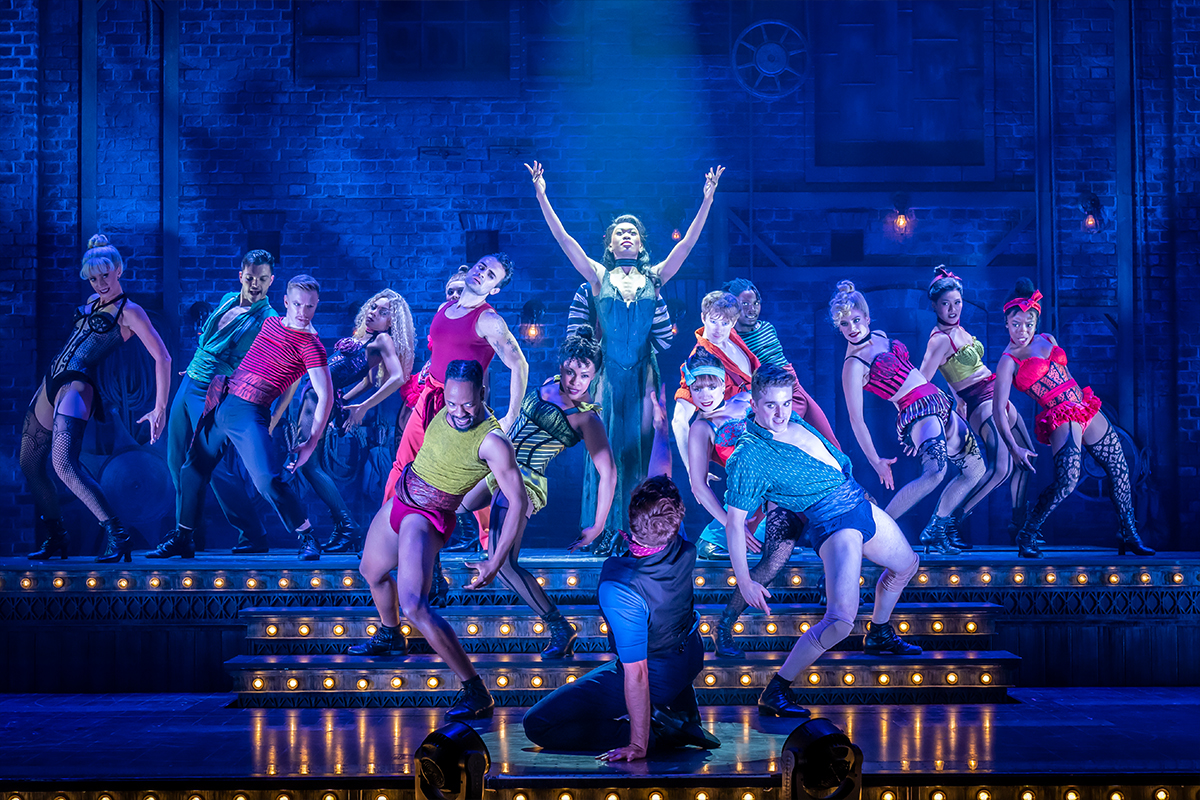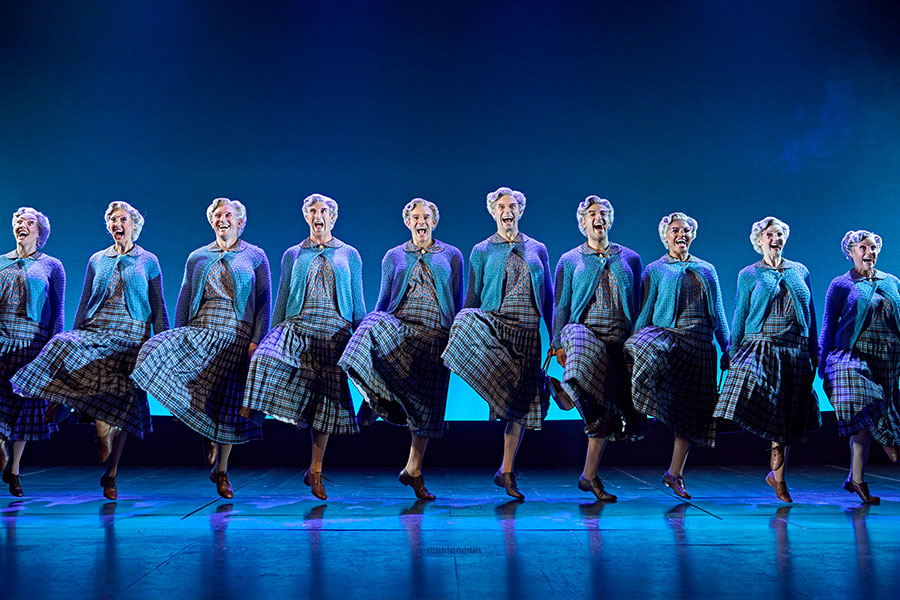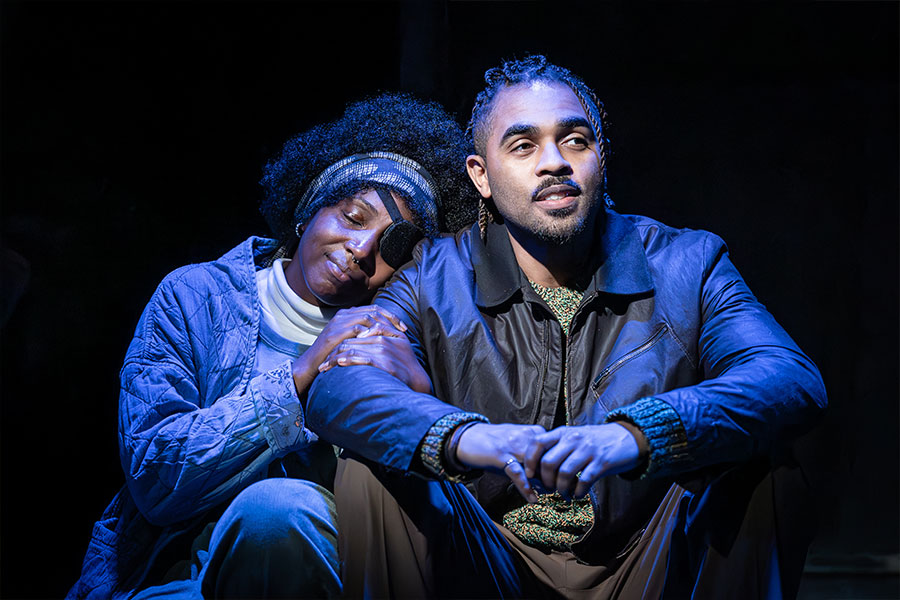Stephen Sondheim & the Art of Lyric Writing
As the Donmar Warehouse’s “Sondheim at 80” festival reaches its zenith this Sunday with the West End concert presentation of Company, here are some thoughts from the octogenarian Stephen Sondheim himself on the subject of writing lyrics for that and other musicals of his, taken from Virgin Books’ newly released anthology of Sondheim’s collect lyrics Finishing the Hat.
There are only three principles necessary for a lyric writer, all of them familiar truisms… They underlie everything I’ve ever written. In no particular order, and to be written in stone:
- Content Dictates Form
- Less Is More
- God Is in the Details
- all in the service of Clarity
without which nothing else matters.
A printed collection of them lyrics bereft of their dramatic circumstances and the music which gives them life, is a dubious proposition. Musical theatre lyrics, even poetic ones, are not poems. Poems are written to be read, silently or aloud, not sung. Some lyrics, awash with florid imagery, present themselves as poetry, but music only underscores (yes) the self-consciousness of the effort. In theatrical fact, it is usually the plainer and flatter lyric that soars poetically when infused with music…Music straightjackets a poem and prevents it from breathing on its own, whereas it liberates a lyric. Poetry doesn’t need music; lyrics do.
Hammerstein, like all good lyricists, not only understood but counted on the power of music to glorify the understatement of his language, a collaborative surrender which poets who write for musical theatre tend to underestimate or resist.
Poets tend to be poor lyricists because their verse has its own inner music and doesn’t make allowance for the real thing…I hasten to add that the intrusion is a problem for non-poet lyricists as well. To cite a favourite example of my own, from West Side Story: “It’s alarming/How charming/I feel,” sings Maria, a lower-class Puerto Rican who has been brought up on street argot and whose brother is a gang leader, but who suddenly sings the smoothly rhymed and coyly elegant phrases of a character from a Noel Coward operetta because the lyricist wants to show of his rhyming skills.
The notion that good rhymes and the expression of emotion are contradictory qualities, that neatness equals lifelessness is, to borrow a disapproving phrase from my old counterpoint text, “the refuge of the destitute”. Claiming that true rhyme is the enemy of substance is the sustaining excuse of lyricists who are unable to rhyme well with any consistency.
The craft is supposed to serve the feeling. A good lyricist should not only have something to say, but a way of saying it as clearly and forcefully as possible… There is something about the conscious use of form in any art that says to the customer, “This is worth saying.”
A perfect rhyme snaps the word, and with it the thought, vigorously into place, rendering it easily intelligible… In the theatre, true rhyme works best on every level.
Company was the first Broadway musical whose defining quality was neither satire, nor sentiment, but irony. It was an observational musical.
George Furth’s dialogue was sharp, fast, and witty but self-sufficient; it not only didn’t lead naturally into song, it virtually precluded it. The only effective approach I could come up with was quasi-Brechtian: songs which either commented on the action, like “The Little things You Do Together” or were the action, like “Barcelona” – but never part of the action. I decided to hold the score together through subject matter: all the songs would deal either with marriage in one sense or another, or with New York City.
“Being Alive” was not the first song intended for Robert’s climactic musical statement, it was the third. (previous being “Multitudes of Amy” and “Happily Ever After”, both cut from the show). “Happily Ever After” seemed too much of a “downer” as Hal Prince persistently called it… Michael Bennett came up with the idea of using the same technique of interlaced voices from Robert’s friends that we had used in “Side by Side by Side”… That suggested to me a song which could progress from complaint to prayer.
Thus, “Being Alive”:
Being Alive
Somebody crowd me with love,
Somebody force me to care,
Somebody let me come through,
I’ll always be there,
As frightened as you,
To help us survive
Being alive, being alive,
Being alive!
The above is extracted from Stephen Sondheim: Finishing the Hat – Collected Lyrics (1954-1981), with Attendant Comments, Principles, Heresies, Grudges, Whines and Anecdotes, which is published by Virgin Books (hardback, £30).
Following this past weekend’s restaging of Merrily We Roll Along, seen at the Donmar in 2000, the concert presentation of Company – reuniting Adrian Lester (as Bobby), Clive Rowe and other members of the cast from Sam Mendes’ 1996 Donmar Warehouse production – takes place this Sunday 7 November 2010 at the West End’s Queen’s Theatre. Also running as part of “Sondheim at 80”, in celebration of the lyricist/composer’s 80th birthday this year, the Donmar’s revival of Sondheim’s 1994 musical Passion, starring Elena Roger, continues at its Covent Garden home base until 27 November. Further ahead outside of London, Sheffield Crucible will revive Company with Olivier Award-winning actor turned artistic director Daniel Evans as Bobby for Christmas 2011.










